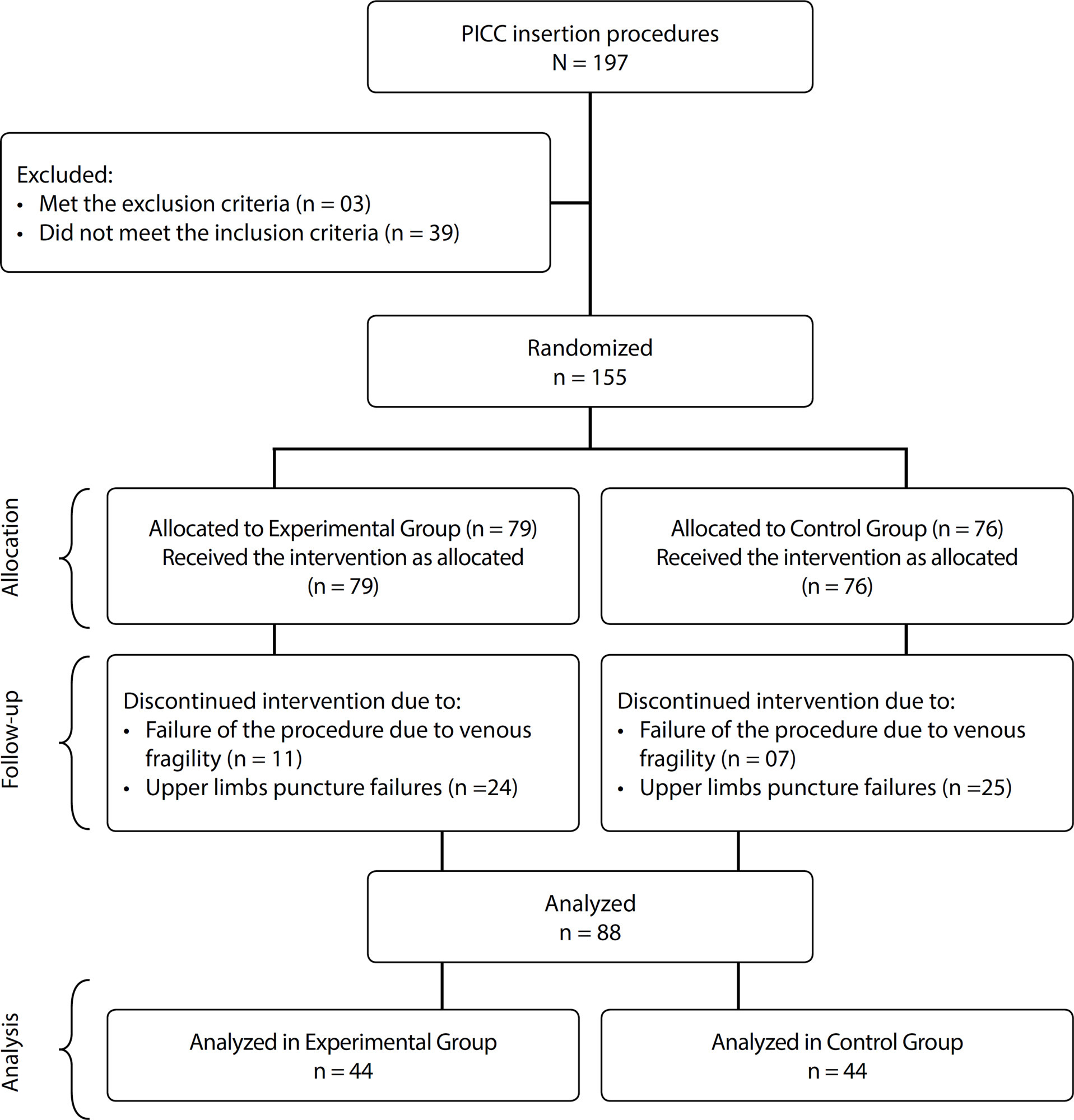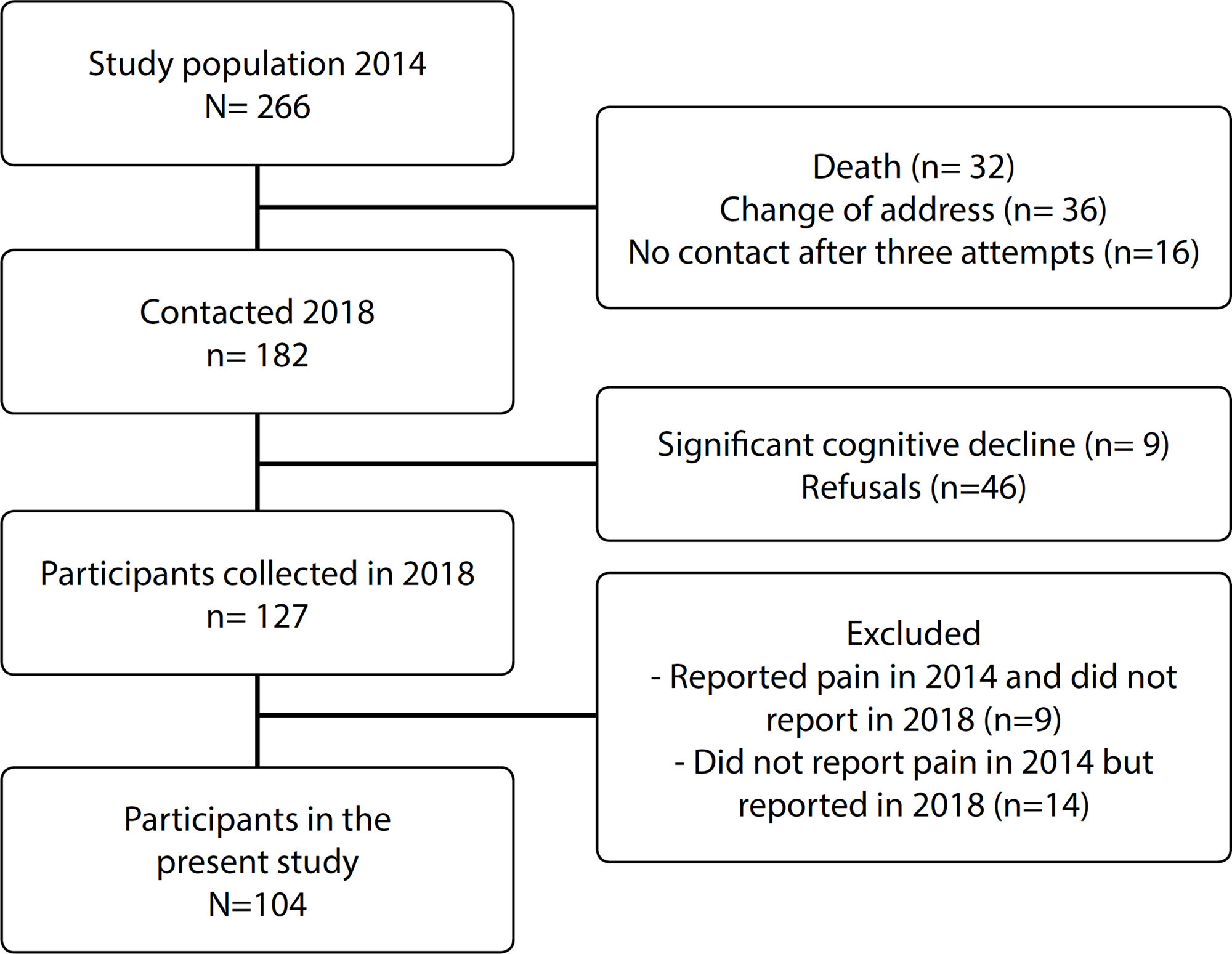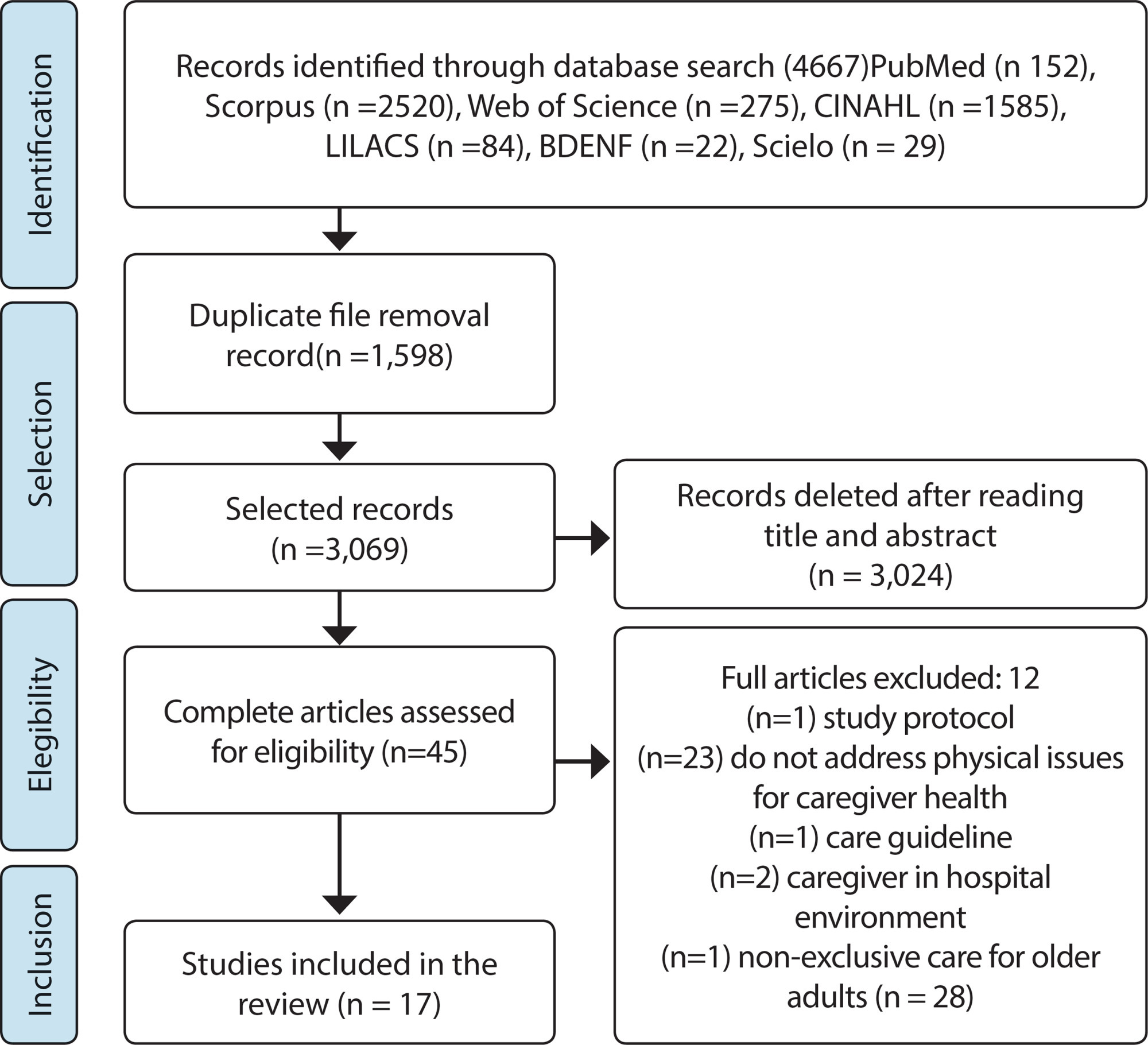-
ORIGINAL ARTICLE12-16-2024
Construction and validation of an educational game on biosafety in the central sterile supply department
Revista Brasileira de Enfermagem. 2024;77(6):e20230478
Abstract
ORIGINAL ARTICLEConstruction and validation of an educational game on biosafety in the central sterile supply department
Revista Brasileira de Enfermagem. 2024;77(6):e20230478
DOI 10.1590/0034-7167-2023-0478
Views0See moreABSTRACT
Objectives:
to construct and validate an educational game on biosafety in the Central Sterile Supply Department of a hospital in Curitiba, PR.
Methods:
the study was conducted using a quantitative approach, employing applied and technological research with an exploratory design. The process was divided into six stages, from the definition of the theme to the validation and application of the game. The study was carried out from May to August 2022, involving 17 nursing professionals from a Central Sterile Supply Department during day and night shifts, as well as 9 judges.
Results:
the study resulted in the construction of a board game named by the authors as “My Health First.”
Conclusions:
the research achieved its objective of constructing and validating an educational game. By reflecting on professional practice and correlating the occupational risks present, the professionals were able to list safe actions, identify problems, and seek solutions.

-
ORIGINAL ARTICLE12-16-2024
Health literacy development of Primary Health Care patients: qualitative research
Revista Brasileira de Enfermagem. 2024;77(6):e20240154
Abstract
ORIGINAL ARTICLEHealth literacy development of Primary Health Care patients: qualitative research
Revista Brasileira de Enfermagem. 2024;77(6):e20240154
DOI 10.1590/0034-7167-2024-0154
Views0See moreABSTRACT
Objectives:
to identify the process of health literacy development among primary care patients, relating it to their self-care practices.
Methods:
qualitative, prospective research with 22 patients from two Family Health Strategy units. Data were obtained through individual semi-structured interviews, examined through descriptive statistics and thematic content analysis.
Results:
the results discuss how participants learn about health and how this resonates in their behaviors, culminating in two thematic categories: “Health knowledge construction”; and “Dialogue between health knowledge construction and patient care actions”.
Final Considerations:
health knowledge is developed mainly through interpersonal relationships, mediated by health professionals through bonding and communication. Community educational actions and training of health professionals in communication can promote health literacy and self-care among patients.

-
ORIGINAL ARTICLE12-16-2024
Analysis of omission of antimicrobial doses in Intensive Care Units
Revista Brasileira de Enfermagem. 2024;77(6):e20240102
Abstract
ORIGINAL ARTICLEAnalysis of omission of antimicrobial doses in Intensive Care Units
Revista Brasileira de Enfermagem. 2024;77(6):e20240102
DOI 10.1590/0034-7167-2024-0102
Views0See moreABSTRACT
Objectives:
to analyze the rate of antimicrobial dose omission in intensive care units.
Methods:
cross-sectional study carried out between March 1 and September 30, 2023, in intensive care units of a University Hospital in Rio de Janeiro.
Results:
the sample consisted of 452 prescriptions and 1467 antimicrobial doses. The dose omission rate was 4.29%. Each antimicrobial prescribed increased the chance of omission by 51%. The strategy of double-checking prescriptions helped prevent 30% of antimicrobial dose omissions (p=0.0001).
Conclusions:
monitoring the omission of antimicrobial doses can guide nursing actions to improve quality and patient safety, contributing to the prevention of medication errors, antimicrobial stewardship and the fight against antimicrobial resistance.
-
REVIEW12-16-2024
Recommendations for guidelines for promoting mental health in the workplace: an umbrella review
Revista Brasileira de Enfermagem. 2024;77(6):e20240086
Abstract
REVIEWRecommendations for guidelines for promoting mental health in the workplace: an umbrella review
Revista Brasileira de Enfermagem. 2024;77(6):e20240086
DOI 10.1590/0034-7167-2024-0086
Views1See moreABSTRACT
Objectives:
to summarize the recommendations of guidelines for promoting mental health in the workplace.
Methods:
an umbrella review, according to Joanna Briggs Institute and Preferred Reporting Items for Systematic reviews and Meta-Analyses methodological assumptions. Data collection was carried out in January 2021 and updated in July 2023 in the American Psychological Association, Cochrane Library, EMBASE, National Library of Medicine, and Scopus databases. Systematic reviews that assessed guidelines with recommendations for mental health care for workers were included. PROSPERO registration CRD42023461845.
Results:
four systematic reviews published between 2015 and 2018 were identified. The abstracts highlighted actions that facilitate and inhibit the recommendations as well as three categories of intervention: primary prevention – worker protection; secondary prevention – promoting workers’ mental health; and tertiary prevention – supporting, monitoring and rehabilitating workers upon returning to work.
Conclusions:
the interventions are based on prevention, promotion and early recognition, support and rehabilitation of mental health problems.

-
ORIGINAL ARTICLE12-16-2024
Psychometric analysis of ProQOL-BR in nursing: building hospital safety and protection
Revista Brasileira de Enfermagem. 2024;77(6):e20240085
Abstract
ORIGINAL ARTICLEPsychometric analysis of ProQOL-BR in nursing: building hospital safety and protection
Revista Brasileira de Enfermagem. 2024;77(6):e20240085
DOI 10.1590/0034-7167-2024-0085
Views0See moreABSTRACT
Objectives:
to analyze the psychometric properties of the ProQOL-BR instrument in hospital nursing professionals.
Methods:
a methodological study to validate the ProQOL-BR. Confirmatory factor analysis, assessment of local and global adjustment quality, Pearson hypothesis testing and Cronbach’s alpha internal consistency analysis were used.
Results:
a total of 490 professionals participated. The model presents adequate quality due to factor weights (λ≥ 0.40), acceptable overall fit quality and adequate chi-square ratio and degrees of freedom (χ2/g.1=2.51) for the parameters of CFI (0.923), GFI (0.902), TLI (0.914) and RMSEA (0.042). In terms of validity, it was shown to be adequate with CC=0.89. The internal consistency obtained by standardized Cronbach’s alpha was 0.761. Criterion validity was shown to be favorable with significant correlations (0.001).
Conclusions:
the instrument was validated regarding content, criteria and reliability. Three questions were removed from the original instrument, ProQOL-BR, leaving the final instrument with 25 questions.

-
12-16-2024
GerenciaDOR™: development of digital technology by nurses for the assessment of patients with chronic pain
Revista Brasileira de Enfermagem. 2024;77(6):e20240050
Abstract
GerenciaDOR™: development of digital technology by nurses for the assessment of patients with chronic pain
Revista Brasileira de Enfermagem. 2024;77(6):e20240050
DOI 10.1590/0034-7167-2024-0050
Views0See moreABSTRACT
Objectives:
to develop a digital technological solution (prototype) for assessing patients with chronic pain.
Methods:
this is a methodological and technological development study based on the Human-Centered Design framework and the principles of Patient-Centered Care. The prototype guides patients through a body diagram and directs them to an evaluation using specific instruments that address the multidimensional aspects of chronic pain.
Results:
the GerenciaDOR* project enables navigation through the Web App screens, providing access to pain assessment features up to the presentation of results.
Final Considerations:
the study describes a systematic approach to pain assessment and expands nurses’ knowledge in pain management. Additionally, it can promote the development of other digital technologies for chronic pain assessment and contribute to a multidisciplinary, patient centered treatment.

-
ORIGINAL ARTICLE12-16-2024
Respectful care for postpartum women with sickle cell disease: a netnographic study
Revista Brasileira de Enfermagem. 2024;77(6):e20230545
Abstract
ORIGINAL ARTICLERespectful care for postpartum women with sickle cell disease: a netnographic study
Revista Brasileira de Enfermagem. 2024;77(6):e20230545
DOI 10.1590/0034-7167-2023-0545
Views1See moreABSTRACT
Objectives:
to analyze principles of respectful maternity care in narratives of postpartum women with sickle cell disease, relating them to Sustainable Development Goals.
Methods:
netnographic study, with two videos published in 2020. Deductive iconographic and thematic analysis by Respectful Maternity Care Charter, organized in MAXQDA.
Results:
principles identified were the right to: freedom from harm and ill-treatment; information, informed consent, refusal of medical procedures, and respect for their choices and preferences including companion; be considered a person from birth, with dignified and respectful treatment; health at the highest possible level; newborns being with their parents or guardians. The Sustainable Development Goals for women by 2030 were not positively contemplated in postpartum women’s experience.
Final Considerations:
it is appropriate that health workers qualify themselves to provide respectful maternity care, with qualified listening, understanding, and resolution of unique demands of postpartum women with sickle cell disease, seeking equality in care for women.

-
REVIEW12-16-2024
Strategies for expanding vaccination coverage in children in Brazil: systematic literature review
Revista Brasileira de Enfermagem. 2024;77(6):e20230343
Abstract
REVIEWStrategies for expanding vaccination coverage in children in Brazil: systematic literature review
Revista Brasileira de Enfermagem. 2024;77(6):e20230343
DOI 10.1590/0034-7167-2023-0343
Views1See moreABSTRACT
Objectives:
to identify the strategies found in the literature for increasing vaccination coverage among children in Brazil. It is justified mainly by the current scenario of falling vaccination coverage.
Methods:
systematic literature review. The search was carried out in the Pubmed (MEDLINE), Embase and Scopus databases, following the PRISMA guidelines.
Results:
initially, 4,824 results were returned. In the end, 6 studies were included for narrative synthesis using the SWiM methodology. Of these, 50% dealt with studies related to the Bolsa Família Program (PBF). The others explored strategies for approaching parents directly, Rapid Vaccination Monitoring (MRV) and the Community Health Agents Program (PACS). The PBF did not guarantee compliance with the conditionality of keeping vaccinations up to date. The MRV and PACS are effective strategies, especially because they allow active search for absentees.
Conclusions:
we conclude that more publications are needed on strategies to increase vaccination coverage among children in Brazil.

-
ORIGINAL ARTICLE10-18-2022
Methods for measuring venous peripherally inserted central catheters in newborns
Revista Brasileira de Enfermagem. 2022;75(2):e20210045
Abstract
ORIGINAL ARTICLEMethods for measuring venous peripherally inserted central catheters in newborns
Revista Brasileira de Enfermagem. 2022;75(2):e20210045
DOI 10.1590/0034-7167-2021-0045
Views0See moreABSTRACT
Objective:
to analyze the results of insertion procedures of Peripherally Inserted Central Catheters in newborns using two measurement methods.
Methods:
this is a randomized clinical trial, presenting descriptive and exploratory results of variables. It was held at a Neonatal Intensive Care Unit. Data were collected between September 2018 and 2019. The sample analyzed was 88 catheter insertion procedures, distributed in two groups. Study approved by an Institutional Review Board and obtained registration in the country and abroad. Descriptive analysis and logistic regression of data.
Results:
modified measurement obtained a significant difference for the central catheter tip location. Elective removals and adverse events were not significant between groups; however, poor positioning was related to adverse events.
Conclusions:
between the two methods analyzed, the modified measurement obtained better results in the proper catheter tip positioning and, consequently, less risk to patients.

-
REVIEW02-06-2023
Nursing care management concepts: scoping review
Revista Brasileira de Enfermagem. 2023;76(1):e20220020
Abstract
REVIEWNursing care management concepts: scoping review
Revista Brasileira de Enfermagem. 2023;76(1):e20220020
DOI 10.1590/0034-7167-2022-0020
Views0See moreABSTRACT
Objectives:
to clarify the concepts of Nursing Care Management and Nursing Care Administration in the scientific literature, highlighting approximations and distances between the terms.
Methods:
scoping review as per Joanna Briggs Institute protocol and preferred reporting items for Systematic Reviews and Meta-analysis extension for Scoping Reviews (PRISMA-ScR). The searches were performed in LILACS, CINAHL, MEDLINE, and Scopus databases.
Results:
the qualitative analysis, through content analysis, counted 49 studies published between 2007 and 2020. Hospital care was the most evident level of care. It was identified that nursing care management aims at the macropolitical performance of nurses and mobilizes skills essentially strategic-cognitive, while Nursing Care Administration aims at the micropolitical performance of nurses, requiring essentially strategic-administrative skills.
Final Considerations:
the study allowed us to propose the conceptualization of the terms and identify the approximations and distances between them.

-
REVIEW07-05-2021
Nursing care related to fall prevention among hospitalized elderly people: an integrative review
Revista Brasileira de Enfermagem. 2021;74:e20200904
Abstract
REVIEWNursing care related to fall prevention among hospitalized elderly people: an integrative review
Revista Brasileira de Enfermagem. 2021;74:e20200904
DOI 10.1590/0034-7167-2020-0904
Views0See moreABSTRACT
Objective:
to identify scientific productions on nursing care related to fall risk prevention among hospitalized elderly people.
Methods:
an integrative literature review from 2015 to 2019 in the PubMed/MEDLINE, Scopus, Web of Science, LILACS, BDENF, SciELO and CINAHL databases, in Portuguese, English and Spanish. The keywords were elderly, hospitalization, accidents due to falls, nursing care.
Results:
thirty-three publications were analyzed. The synthesis of the studies resulted in the categories: Clinical nursing assessments to prevent falls among hospitalized elderly people; Fall risk factors for elderly people; Fall risk prevention strategies for elderly people.
Final considerations:
it was found that the scientific knowledge produced on nursing care related to fall risk prevention for hospitalized elderly people evidences the clinical assessment, risk factors and strategies such as nursing care, contributing to foster self-care behavior and promotion security for elderly people.

-
02-12-2021
(Lack of) oral hygiene care for hospitalized elderly patients
Revista Brasileira de Enfermagem. 2021;74:e20200415
Abstract
(Lack of) oral hygiene care for hospitalized elderly patients
Revista Brasileira de Enfermagem. 2021;74:e20200415
DOI 10.1590/0034-7167-2020-0415
Views0See moreABSTRACT
Objective:
to analyze the oral hygiene care for hospitalized elderly patients provided by the nursing staff.
Method:
this is a qualitative, exploratory-descriptive study carried out in a university hospital, with the participation of 35 professionals from the nursing staff. Data collection was carried out through semi-structured interviews, explored through thematic content analysis.
Results:
two categories emerged: The oral hygiene of hospitalized elderly patients as an extension of body care and Barriers in (lack of) care with the oral hygiene of hospitalized elderly patients, with two subcategories: The oral hygiene and dental prosthesis technique performed divergently; Care hampered by deficit of materials and human resources.
Final considerations:
this study showed weaknesses in the oral hygiene care of hospitalized elderly patients, promoting reflections on the practice informed in data and management actions, allowing recommendations of care standards for the nursing staff.
-
05-21-2021
Influence of chronic pain on cognitive performance in elderly caregivers: a longitudinal study
Revista Brasileira de Enfermagem. 2021;74:e20200412
Abstract
Influence of chronic pain on cognitive performance in elderly caregivers: a longitudinal study
Revista Brasileira de Enfermagem. 2021;74:e20200412
DOI 10.1590/0034-7167-2020-0412
Views0See moreABSTRACT
Objective:
to compare cognitive performance of elderly caregivers with and without chronic pain over four years and verify the effect of pain intensity on cognitive performance of elderly caregivers with chronic pain.
Method:
a longitudinal study with data collected in 2014 and 2018. Community-dwelling elderly caregivers of a Brazilian city participated in the study. Cognition was assessed using the Addenbrooke’s Cognitive Examination instrument. Pain was assessed by an 11-point scale. For data analysis, a mixed linear model and ANCOVA with a 5% significance level were used.
Results:
they were divided into two groups. A cognitive decline over four years was found in elderly people with pain (p=0.02; 95%CI=0.32-4.25), while those without pain did not show a significant change.
Conclusion:
the results show that elderly caregivers with pain had a worse cognitive performance, but when comparing groups with the ANCOVA test for intergroup analysis, there was no difference in cognitive performance.

-
REVIEW05-21-2021
Musculoskeletal disorders of older adults: an integrative literature review
Revista Brasileira de Enfermagem. 2021;74:e20200626
Abstract
REVIEWMusculoskeletal disorders of older adults: an integrative literature review
Revista Brasileira de Enfermagem. 2021;74:e20200626
DOI 10.1590/0034-7167-2020-0626
Views0See moreABSTRACT
Objective:
to analyze in available scientific literature what problems are caused to the musculoskeletal system of caregivers of older adults in the home environment.
Methods:
an integrative literature review indexed in the PubMed, CINAHL, Web of Science, SCOPUS, BDENF, LILACS and SciELO databases.
Results:
the sample totaled 17 studies that showed three thematic categories: Care overload for caregivers’ health; Caregivers’ physical illness; Caregiver self-neglect.
Conclusion:
the evidence identified health problems for caregivers of older adults, regarding the musculoskeletal system, demonstrating the importance of considering intervention strategies that provide guidelines for self-care guidelines, in order to prevent musculoskeletal complications resulting from older adults’ care activities at home.

-
ORIGINAL ARTICLE10-06-2023
Effect of guided imagery relaxation on anxiety in cervical cancer: randomized clinical trial
Revista Brasileira de Enfermagem. 2023;76(5):e20210874
Abstract
ORIGINAL ARTICLEEffect of guided imagery relaxation on anxiety in cervical cancer: randomized clinical trial
Revista Brasileira de Enfermagem. 2023;76(5):e20210874
DOI 10.1590/0034-7167-2021-0874
Views0See moreABSTRACT
Objectives:
to evaluate the effect of guided imagery relaxation through virtual reality on anxiety in women with cervical cancer undergoing radiochemotherapy.
Methods:
randomized, non-blinded, single-center clinical trial conducted at a cancer reference hospital. 52 women participated, with randomized allocation of 24 in the control group and 28 in the experimental group (12 sessions of guided imagery relaxation through virtual reality, applied three times a week). The outcome was evaluated using the State-Trait Anxiety Inventory and statistical analysis was performed using the Generalized Linear Mixed Model.
Results:
n the experimental group, women presented significant anxiety traits (p=0.010) before the intervention. Between the 4th and 12th week of follow-up, there was a reduction in anxiety levels, without statistical significance.
Conclusions:
guided imagery relaxation through virtual reality provided evidence of anxiety reduction in women with cervical cancer undergoing radiochemotherapy and may contribute to clinical practice. Brazilian Clinical Trial Registry: RBR-7ssvytb.

-
ORIGINAL ARTICLE09-18-2023
Vaccination coverage in children under one year of age and associated socioeconomic factors: maps of spatial heterogeneity
Revista Brasileira de Enfermagem. 2023;76(4):e20220734
Abstract
ORIGINAL ARTICLEVaccination coverage in children under one year of age and associated socioeconomic factors: maps of spatial heterogeneity
Revista Brasileira de Enfermagem. 2023;76(4):e20220734
DOI 10.1590/0034-7167-2022-0734
Views0See moreABSTRACT
Objective:
to analyze vaccination coverage spatial distribution in children under one year old and the socioeconomic factors associated with meeting the recommended goals in Minas Gerais.
Methods:
an ecological study, carried out in 853 municipalities in the state. Pentavalent, poliomyelitis, meningococcal conjugate, yellow fever, rotavirus, and 10-valent pneumococcal conjugate vaccination coverage were analyzed. Scan statistics and multiple logistic regression were performed to identify spatial clusters and factors associated with meeting coverage goals.
Results:
spatial analysis revealed clusters with risk of low coverage for all vaccines. Number of families with per capita income of up to 1/2 wage, Minas Gerais Social Responsibility Index and percentage of the poor or extremely poor population were associated with meeting the established goals.
Conclusions:
the results are useful for designing interventions regarding the structuring of vaccination services and the implementation of actions to increase vaccination coverage in clusters with less propensity to vaccinate.

Search
Search in:
Nuvem de Tags
Adolescente (85) Atenção Primária à Saúde (239) COVID-19 (91) Criança (91) Cuidados de Enfermagem (269) Educação em Enfermagem (151) Educação em Saúde (139) Enfermagem (930) Enfermagem Pediátrica (86) Estudantes de Enfermagem (77) Estudos de Validação (131) Família (87) Idoso (208) Promoção da Saúde (99) Qualidade de Vida (104) Saúde do Trabalhador (86) Saúde Mental (145) Saúde Pública (82) Segurança do Paciente (150) Tecnologia Educacional (100)



